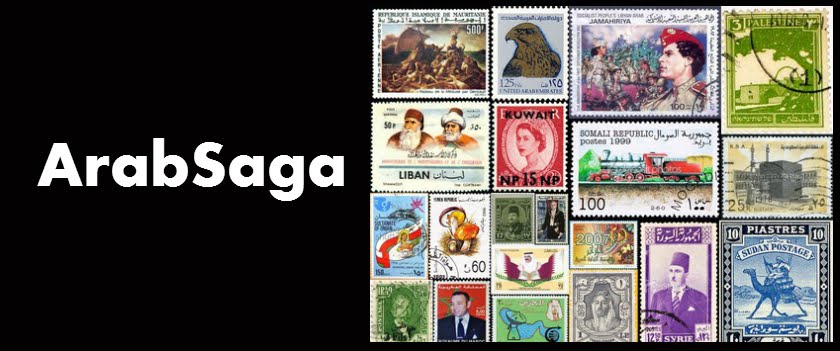 |
| This tank captured by the FSA was festooned to mark Eid al-Adha |
Saudi media
celebrity Jamal Khashoggi was back home in time for Eid al-Adha after a trip to
the United States via Turkey. The think piece he penned in Arabic for today’s
edition of pan-Arab al-Hayat sums up his impressions from the journey:
As I made my way across the campus of Lynn University
in Boca Raton, Florida, for last Monday’s face-off on foreign policy between
Barack Obama and Mitt Romney, I was struck by 2,500-3,000 media people
credentialed to cover the event and the amount of cable laid to broadcast it.
Each of the two presidential candidates sought to
convince U.S. voters he was better qualified to lead America over the next four
years.
Beleaguered Syria was hoping to feature at that third
and final debate.
The debate’s theme was foreign policy, but the two
candidates ended sparring over economic policies.
Syria got its share with President Obama declaring he
was “mobilizing the moderate forces inside Syria” and Romney professing Iran was
backing Syria because “it’s their route to the sea.”
The debate left me downbeat.
How would Obama identify the “moderates” amongst the
insurgents so he can mobilize them, or allow others to do so, if he were to win
the November 6 vote?
Had Obama asked for my opinion, I would have said: All Syrian revolutionaries are moderates; so
back them first and then exclude the ones who prove to be extremists.
Warning: Graphic footage in
al-Qusayr Field Hospital
VICE commissioned renowned
photojournalist and videographer Robert King to embed on the front lines with
the Free Syrian Army in Aleppo. War-zone chaos ensued. In this episode, Assad
forces hit Al Qusayr with a rocket attack while Robert is filming - it was
targeted directly.
As regards Romney, Syrians would have to wait until
he is inaugurated in January and familiarizes himself with the region’s map and
its geopolitics before outlining his Syria roadmap.
Damn the deadly terror attack on the U.S. consulate
in Libya in which the American ambassadors and three other Americans were
killed.
The assailants harmed the Syrian people’s cause by
making the attack a political football in the presidential campaign and turning
U.S. public opinion against the Arab Spring.
Romney, for instance, seized on the outrage in
Benghazi to speak of “a dramatic reversal in the kind of (Arab Spring) hopes we
had for that region.”
A Turkish journalist also emphasized the weight of
public opinion to me last week during my Istanbul stopover. We were both
participating in a panel discussion behind closed doors on the situation in
Syria.
The Turkish journalist said, “The Arabs want Turkey
to do everything. But they have to help Prime Minister (Recep Tayyip) Erdogan
galvanize Turkish public opinion, which doesn’t want a war. Turks are enjoying
unprecedented prosperity. They fear losing it if the country slipped into armed
conflict.”
The Turkish journalist went on, “What would help
Erdogan win public opinion support for intervention, for example, is to see the
Saudis and Qataris deploying squadrons of their warplanes to an airbase in
southern Turkey. Such a move would send a clear signal to the Turkish public
that their government is not in it on its own.”
The prevailing view in the panel discussion was that
without U.S. cover, which could only come after November 6, Ankara wouldn’t go
it alone and intervene militarily in Syria.
Turkey could create a no-fly zone (NFZ) over northern
Syria. Effectively, the NFZ would prevent flights over the whole of Syria for
geographical reasons. Safe havens in northwest Syria, which is already under
rebel control, would follow automatically. They would accommodate hundreds of
thousands of internally displaced Syrians.
The Free Syrian Army (FSA) could then proceed to
challenge airpower-starved regime forces all the way to Damascus. The regime
has already lost the deterrence of its chemical weapons. These have reportedly
been placed under full Russian control, with Russian assurances to Washington and
its western partners. At the same time, a joint American-British rapid
intervention task force was sent to Jordan to monitor the secured chemical
weapons sites.
Once the regime’s airpower is “neutralized,” the
insurgents would have no need for Stingers and other MANPADs.
Instead, they would call for anti-tank missiles, which the Americans can approve
at no cost to U.S. taxpayers since donators are at the ready.
Most Syria watchers concur that limited intervention can
swiftly settle the battle for Syria and prevent the conflict from festering and
becoming a fertile breeding ground for al-Qaeda. But they failed to sway the
international community and Syria’s neighbors, who still prefer to wait and see
the outcome of the U.S. election or maybe something else.
The best that can be done meantime is to appeal to
brave partisans to help Syrians avoid living through another Feast of Sacrifice
such as this one.
Omar
Offendum, a Syrian-American hip-hop artist
born in Saudi Arabia, raised in Washington DC and living in Los Angeles,
release this single “#Syria” in March
